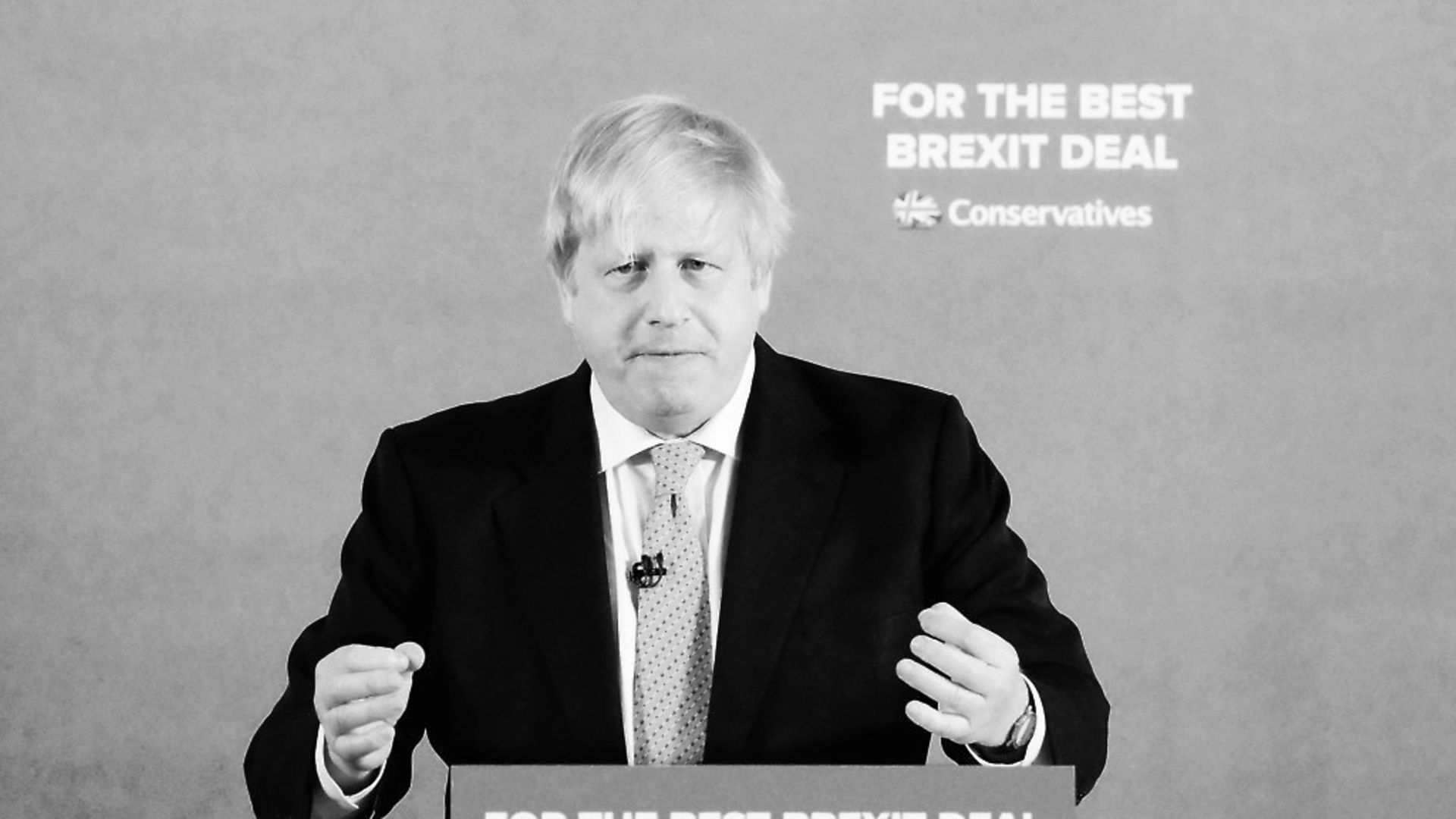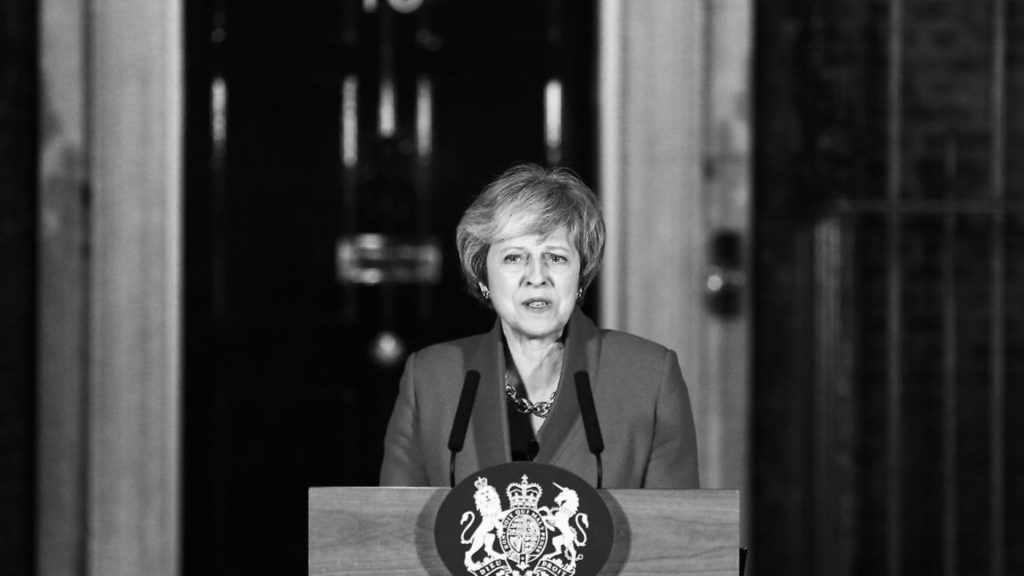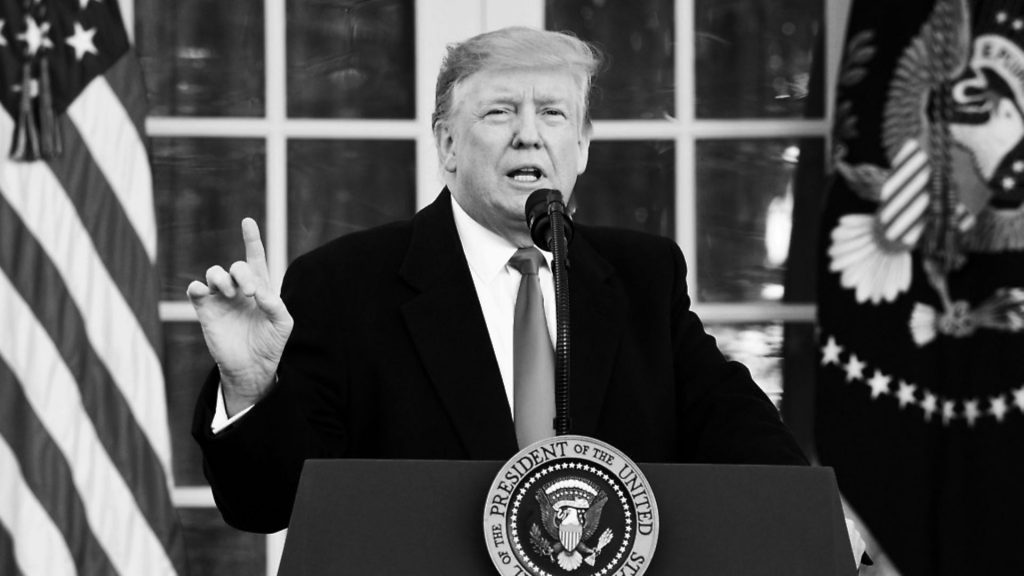
Our growing acceptance of deceit in public life will have disastrous consequences for us all, warns GAVIN ESLER.

Politics used to be regarded as the art of the possible. When Otto von Bismarck coined that phrase he said politics was concerned with achieving, as he put it, what is ‘attainable’. But things have changed. Modern populist politics has become the art of the impossible, with leaders typically promising what common-sense suggests is unattainable and then achieving little or nothing to fulfil their pledges.
Donald Trump and Britain’s Brexiters are the most obvious examples. They continually promote ideas and fantasies which everyone knows cannot be achieved, yet they survive and even thrive. And that’s the real puzzle, since even in the recent past one big lie or broken promise meant the death of a political career.
I have experience of this. As the BBC’s chief North America correspondent I spent a year of my life on one lie. It was 1998 and the lie was: ‘I did not have sexual relations with that woman, Miss Lewinsky.’ Bill Clinton was impeached as a result, and he came within a whisker of being thrown out of the White House.
Six years earlier, in 1992, I had spent a few months on another lie. President George H W Bush actually did lose the White House as a result of the promise he made four years earlier: ‘Read my lips. No new taxes.’ He raised taxes and voters said ‘goodbye George’. Such happy days! So innocent! To live at a time when a single lie made news for months and meant the leader of the world’s most powerful democracy could lose his job. But not any more.

The Washington Post estimates that in his first two years in office Donald Trump told at least 6,420 lies in 649 days – averaging 15 a day in 2018. Some days he hit 30 or more. The New York Times published a list of lies, and claimed Trump told six times more falsehoods in a few months than Barack Obama did in all eight years of his presidency.
Trump, of course, responds by calling all this ‘fake news’. The president of the United States, in other words, defends himself against the charge of lying by telling another lie.
In our own British politics, libel laws and parliamentary custom means calling someone a liar is frowned upon as well as potentially very expensive. But American journalists go straight for the ‘L’ word with their populist Pinocchio-in-Chief and avoid weaselly words like ‘mis-statements’ and ‘mis-speaking’, especially since Trump’s lies are so shameless. He often contradicts what you can actually see or hear, rather like the old Chico Marx gag: ‘Who ya gonna believe me – or your own eyes?’
A list of Trump’s Greatest Fibs includes some of the following: He claims to have been against the 2003 Iraq war, while he publicly supported it. He boasts about the popularity of his inauguration, while television pictures show it was not as well attended as those of Clinton, Bush or Obama. He claims Americans pay the highest taxes in the world. They don’t. He says North Korea ‘agreed to denuclearisation’. They haven’t. Mexico will pay for the wall. They won’t. Last Christmas he tweeted he was working in the Oval Office. When the president is in that office a marine guard is always visible on duty. There was no marine guard. And so on.
But strikingly the negative political consequences for Trump in 2019 are not those of Bush senior or Clinton in the 1990s. More than a third of American voters – roughly 40% – continue to support Teflon Trump. Presumably they would do so even if he claimed he was the first man on the moon. (FACT CHECK: He wasn’t.)
British reluctance to use the ‘L’ word is deep seated. We love our euphemisms for lying. In Thatcher’s Britain, during a government scandal the then cabinet secretary Sir Robert Armstrong quipped that people may have been ‘economical with the truth’. Others talk of ‘spin’. Winston Churchill spoke of ‘terminological inexactitude’. But whatever you call it, considering the state of Westminster politics now, we are teetering on the brink of Trumpland.
The talents of the former foreign secretary Boris Johnson in this regard are worth considering. Johnson is emblematic of the populist politician who promises the moon yet delivers not even the faintest glow of moonshine. We are familiar with his solemn promises and schemes of the ‘read my lips…’ type – the extra £350 million which will come to the NHS once we leave the European Union, his claim that he knows more about automobile manufacturing than Dr Ralf Speth, the CEO of Jaguar Land Rover.
But the parallels with Trumpland, allowing for an Eton and Oxford accent, become quite striking the harder you look. Trump promised to build a wall and make Mexico pay for it. Johnson has proposed various fantasy bridges from Scotland to Northern Ireland, England to France, a Garden Bridge across the Thames and a new London airport on the sea down the Thames estuary. The taxpayer will pay for it.
His one fantasy which became a near-reality was his purchase of German anti-riot water cannon, although these have never been used and were sold as scrap at a loss of around £300,000. But – again, as with Trump – the puzzle is why none of these mis-steps, mis-statements or obviously daft ideas have dented the enthusiasm of those who see Johnson as our prime minister in waiting.
The Johnson record of what Huckleberry Finn called ‘stretchers’ goes back even further. The respected former Times Brussels correspondent Martin Fletcher reported in the New Statesman, that as journalist Johnson: ‘wrote stories headlined ‘Brussels recruits sniffers to ensure that Euro-manure smells the same’, ‘Threat to British pink sausages’ and ‘Snails are fish, says EU’. He wrote about plans to standardise condom sizes and ban prawn cocktail flavour crisps….’ When confronted with all this Johnson appears to have regarded such efforts as a bit of a joke. But the joke, as with Trump, is on us.
While Bush senior was ejected from the White House, Clinton became beleaguered and Tony Blair’s reputation was destroyed by the accusation of lying about the 2003 Iraq War, we have become so used to Brexit fantasies about ‘sunlit uplands’ where we ‘have our cake and eat it’ and ‘there will be no downside to Brexit, only a considerable upside’, following an EU trade deal that will be the ‘easiest in human history’, that we appear to have forgotten such shameless nonsense ultimately destroys faith in democracy itself. The sad truth on both sides of the Atlantic is that lies have become normalised. Fantastical promises are made every day and broken the day afterwards. Mangled truths extend even to the vicar’s daughter in Downing Street.
Last week Theresa May voted against the Brexit Withdrawal Agreement which as prime minister she negotiated over the previous two years, and had recommended to parliament at Christmas.
Rather than this 180 degree U-turn being a matter for shame and resignation, it was presented as a matter for celebration. ‘She did it!’ trumpeted the Daily Express. ‘Yes she did,’ tweeted the deputy chairman of the Conservative party James Cleverly. Yes, the prime minister who said there was only one deal and it was non-negotiable effectively voted against that same deal and said she would re-negotiate it and present parliament with another version, all in the matter of a few weeks. But instead of running her out of office, the British public, like the American public, seems to be so used to the normalisation of ‘economical with the truth’ nonsense that we just keep calm and carry on because it is just the way things are. Perhaps. But it’s not the way things they ought to be. Nor is it how they used to be.
A clue to why May, Trump, Johnson and other populist fantasists survive comes from an eminent statesman from Victorian times. Sir Henry Taylor once observed that ‘falsehood ceases to be falsehood when it is understood on all sides that the truth is not expected to be spoken’.
Taylor understood that in matters of war, diplomacy or national security the public is sensible enough to understand that we cannot always expect the whole truth. Churchill rightly asserted that ‘in wartime truth is so precious she must always be attended by a bodyguard of lies’. And Clinton survived lying about Lewinsky in part because for most Americans ‘the truth is not expected to be spoken’ about sex either.
Right now, after two years of Trump and Brexit fantasies, sections of the British and American public appear to have decided that ‘the truth is not expected to be spoken’ in the White House or Westminster either. The bar of truth has been lowered so far that we just assume it’s just another phoney promise and get on with our lives.
But accepting the previously unacceptable has serious consequences. I challenged a Trump-supporting businessman a few months ago about his president’s lies, and the response sticks in my mind. The businessman said that Trump’s disputed statements were all part of a deeply-considered plan to keep his enemies on the wrong foot. The businessman clearly believed in this Baldrick ‘cunning plan’ idea. But the toleration of lies it involves takes us into very dangerous territory.
In her preface to The Origins of Totalitarianism Hannah Arendt writes of the 1930s in her native Germany and in the Soviet Union that: ‘In an ever-changing, incomprehensible world the masses had reached the point where they would, at the same time, believe everything and nothing, think that everything was possible and that nothing was true… under such conditions, one could make people believe the most fantastic statements one day, and trust that if the next day they were given irrefutable proof of their falsehood, they would take refuge in cynicism; instead of deserting the leaders who had lied to them, they would protest that they had known all along that the statement was a lie and would admire the leaders for their superior tactical cleverness.’
Later she notes that ‘the ideal subject of totalitarian rule is not the convinced Nazi or the convinced Communist, but people for whom the distinction between fact and fiction (ie, the reality of experience) and the distinction between true and false (ie, the standards of thought) no longer exist.’ Of course all that Project Fear stuff couldn’t happen here, could it? Not Trumpland or worse in our dear old Britain, our scepter’d isle? Not with a vicar’s daughter in Downing Street and decent old Etonians in parliament? I mean, the very idea is ridiculous. Almost as ridiculous food and medicine shortages and troops on the streets in the event of a no-deal Brexit. Fake news, right?









